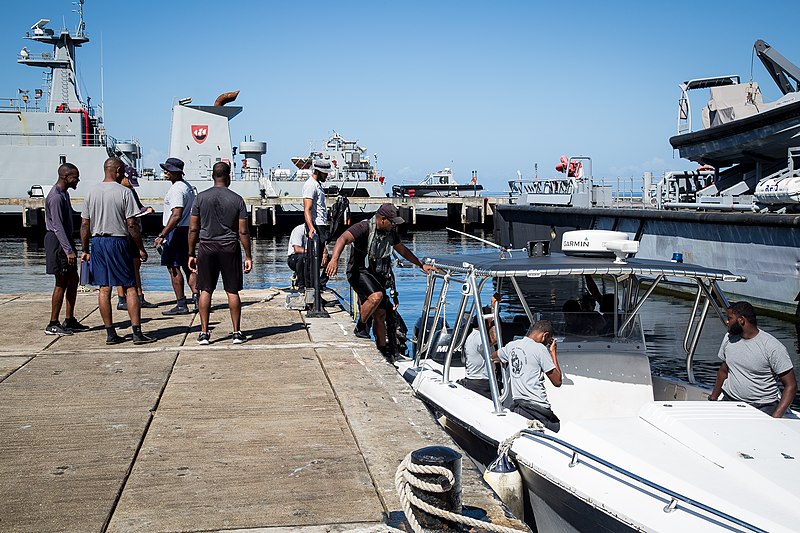
At least 227 migrants were rescued off Spain's Canary Islands on Thursday, following reports of over 30 deaths of migrants in the same area. The Coast Guard conducted the rescue operation
as the migrants were traveling on inflatable boats near the Lanzarote and Gran Canaria islands in the Atlantic.
Some of the rescued individuals were taken to the hospital to receive treatment for mild conditions. This comes after two charities, Walking Borders and Alarm Phone, stated that more than 30 migrants may have drowned when their dinghy sank off Gran Canaria.
Spanish authorities confirmed the discovery of the bodies of a minor and a man, as well as the rescue of 24 others. However, the charities reported that approximately 60 people were on board. Helena Maleno Garzon from Walking Borders stated that 39 people, including four women and a baby, had drowned, while Alarm Phone claimed that 35 people were missing.
The rescue ship Guardamar Caliope, operated by the Spanish rescue service, was in close proximity to the dinghy on Tuesday evening. However, it did not provide assistance as the Moroccan officials had taken over the operation. A Moroccan patrol boat arrived on Wednesday morning, 10 hours after the dinghy was spotted by a Spanish rescue plane.
The incident has been described as a "tragedy" by Angel Victor Torres, the leader of the Canary Islands region. Torres called on the European Union to establish a migration policy that offers coordinated and supportive responses to address the migration issue.
The Canary Islands, although located off Africa's western coast, are part of Spain, and many migrants embark on the journey from Africa to the archipelago in the hopes of reaching mainland Europe.
The Western Africa-Atlantic migration route is known as one of the deadliest in the world. In 2022, the UN's International Organization for Migration (IOM) reported that at least 543 migrants died or went missing on this route. There were 45 shipwrecks recorded during that period, but the IOM acknowledges that the actual figures are likely underestimated due to limited and incomplete data.
Most of the migrants on this route come from countries such as Morocco, Mali, Senegal, Cote d'Ivoire, and other parts of Sub-Saharan Africa, according to the IOM.
Recently, a migrant boat carrying hundreds of people sank off the Greek coast, resulting in at least 78 confirmed deaths, with fears that many more have drowned. The UN's human rights office estimates that up to 500 people are still missing, and evidence obtained by the BBC casts doubt on the Greek coastguard's account of the incident, which claims that the boat was heading to Italy and did not require rescue. Photo by Javon Spence, Wikimedia commons.







































